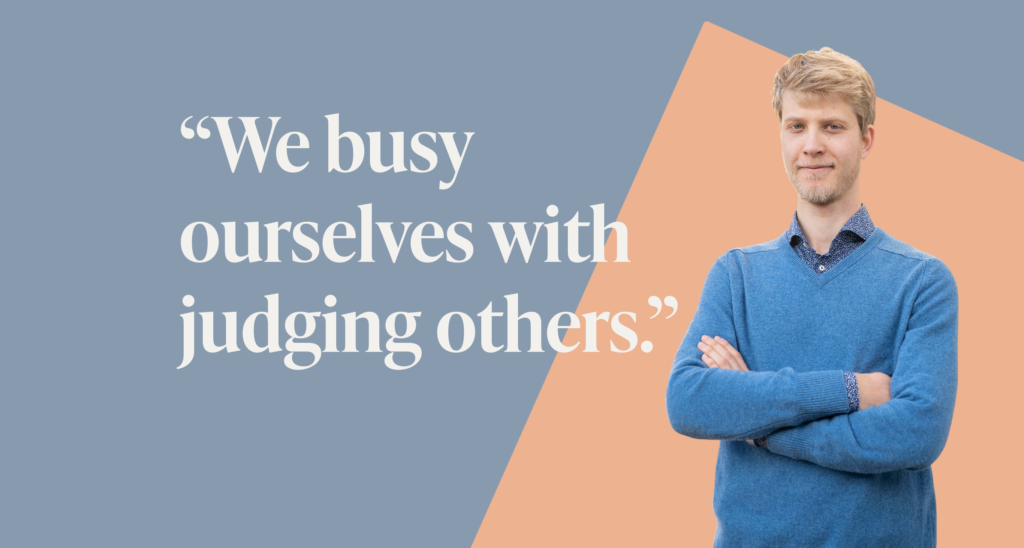Can you tell who a person is by what they study? Are all archeology-majors Indiana Jones-replicas? Lundagård’s culture columnist Ondrej Gomola writes about not judging the book by it’s subject.
In our hyper-connected, competitive society, everybody is vying for a place at the top. This ‘top’ is relative—it means something different to everyone. We show this to others and to ourselves by trying to achieve more in life or otherwise signaling that we stand out from the crowd, that we are not sheep in a herd. This can be through what we wear, how we behave, what we say, and what we study. This last factor I’d like to delve into a little bit.
As humans, we busy ourselves with judging others. And not forgetting to mention, judging ourselves. Let this be through appearances or ‘social norms’. But social norms are not new: one look into Jane Austen’s novels, for instance, reveals much about the supposed virtues of conforming to rigid, stifling social structures. Thankfully, we’ve moved on much since Austen’s time, but many issues remain.
One thing that we do is immediately categorize people based on what they study. This is natural, and that’s the hard truth – whether we like to talk about it or not. Some subjects, such as law and medicine have this aura of legitimacy or superiority around them. Understandably so: they’ve been around, to varying degrees, for millennia. But this doesn’t make humanities and social studies any less legitimate than more quantitative subjects. Engineering for sure is hard, but I’d like to see some engineers write essays like the people at the philosophy faculty do. We need both (and many more!) kinds of people in today’s world.
Our studies are just a label. I knew a guy who studied archaeology—and before I met him, I imagined a youthful-looking Harrison Ford waltzing around to John Williams’ soundtrack. Instead, surprise surprise, this lad didn’t look like Indiana Jones at all.
This shows how little information about a field of studies is revealed by one’s appearance and how popular culture feeds prejudices and preconceptions. According to Suits, most lawyers are cut-throat and brutally competitive, and whose potential career paths include echelons of the British royal family. But it turns out that there are oodles of kind, warm-hearted and compassionate people in the law profession. To take another example, some of us study economics to make the world a better place, perhaps naively. Not everyone chose it to make a lot of cash and work in banking.
Behind each label is a person. A real-life human being with a soul. It’s this soul that you meet, you talk to. Your partner might be a doctor, but I’d argue it’s rather unlikely that’s why they’re your partner. You probably like to spend time with them—not because they’re a doctor, but because they’re them. The same thing goes for your close friends. The laughter and joy experienced together. Imagine how teeth-grindingly dull the world would be if we were all the same.
What I’m trying to say is that labels are useful but hide the great nuances of life. It’s worth considering this the next time you talk to somebody that’s different than you.










